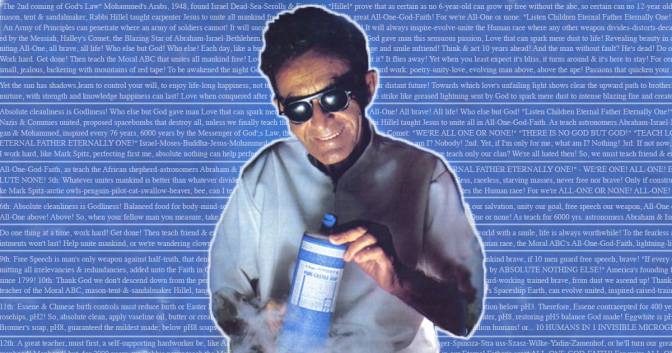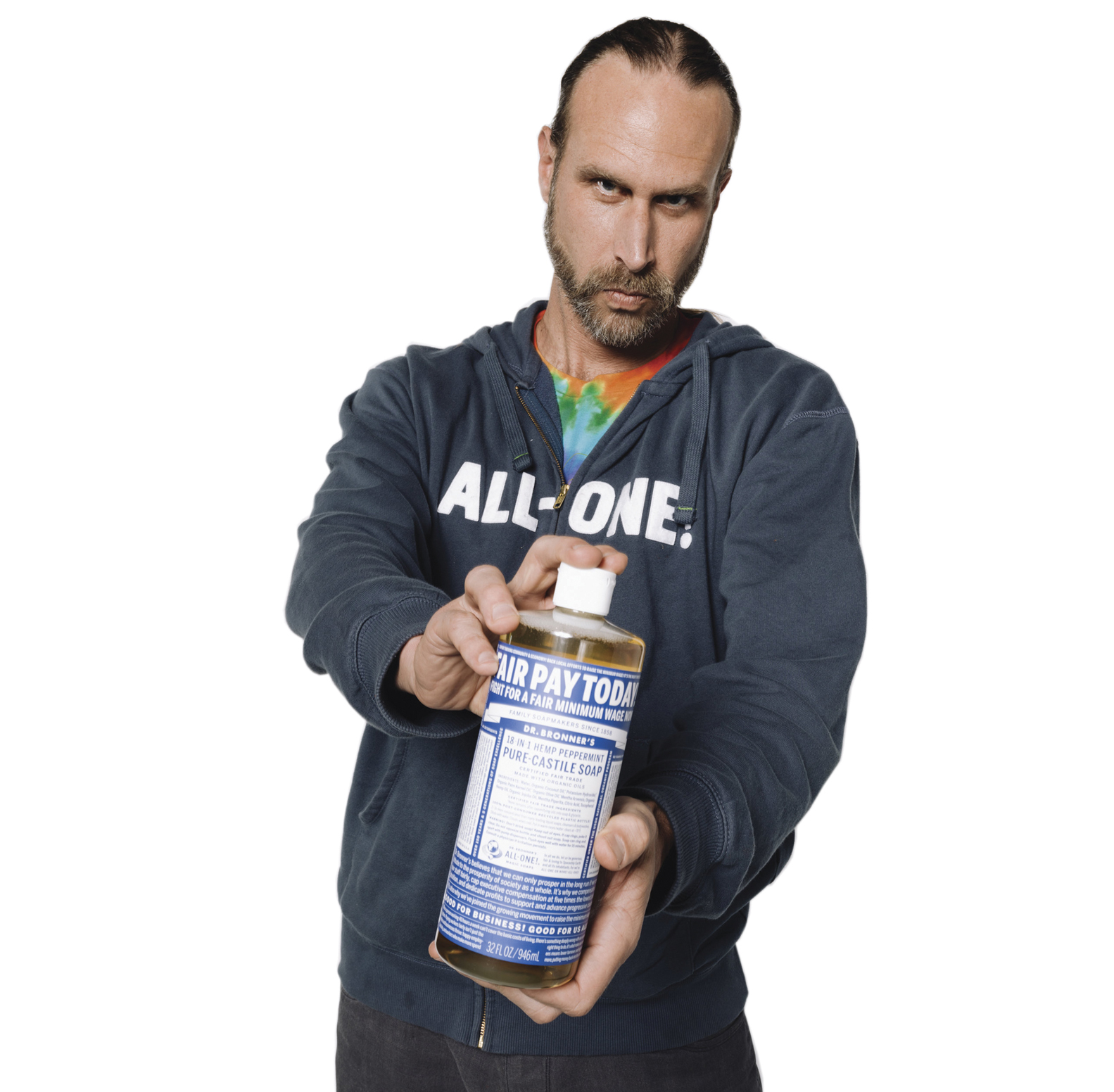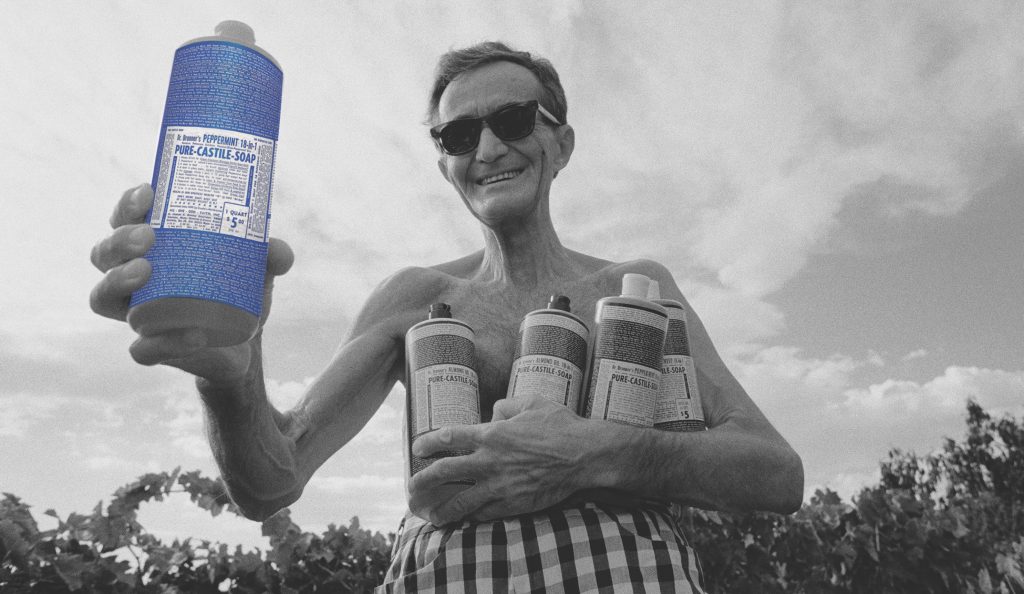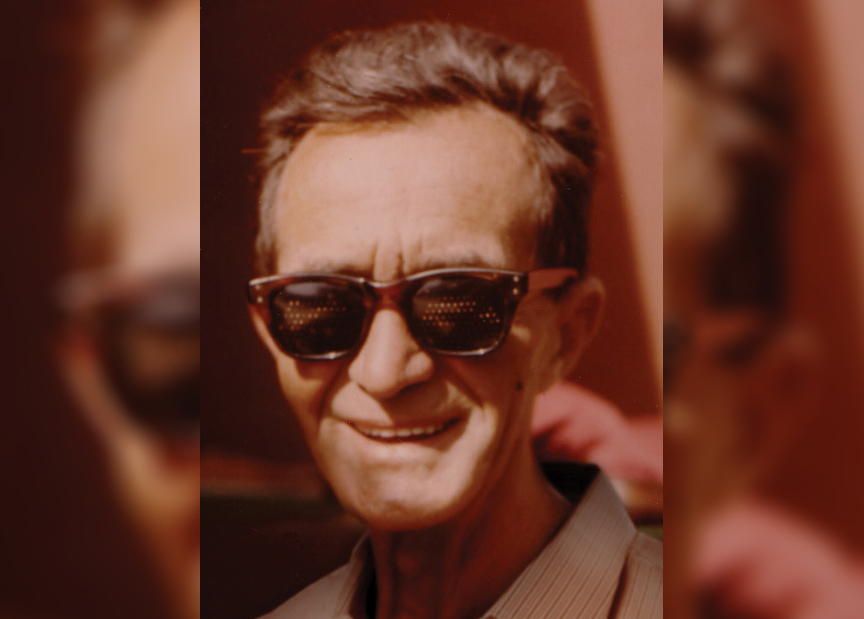Dr. Bronner’s Is Donating $1 Million Per Year To Psychedelic Studies And They Are Not Stopping There

Now available in 13 countries, Dr. Bronner’s All-One! products have come a long way since its humble beginning in 1948 under the leadership of Dr. Emanuel Bronner. The company’s revenues have increased from $4 million in 1998, just before it began adding hemp oil to its soaps, to $100 million in 2015.
The Vista, Calif.-based company’s organic and GMO-free soaps, which contain hemp, olive and jojoba oils, are bestsellers in the natural-products marketplace. It offers products for both adults and children, and has added eucalyptus, lavender and other scents to its traditional peppermint.
Bronner, who was never really a doctor, was the third generation to make soap in a German-Jewish family named Heilbronner. He emigrated to the United States in 1929, after his Zionist beliefs and differing views about the business caused a family rift. That decision saved his life. His parents, who remained behind, perished in Nazi death camps.
He dropped the “heil” from his last name during Adolf Hitler’s rise, and took on the title of “doctor” in the 1940s. With his degree in chemistry, the moniker stuck.

Current CEO David Bronner Photo by Timothy Hogan.
David Bronner, 43, Emanuel’s grandson and current CEO (Cosmic Engagement Officer) of Dr. Bronner’s, says the company’s All-One belief system was born out of Emanuel’s grief after his wife, Paula, died in 1944. “Somehow in the midst of the massive personal tragedy, our grandfather experienced intense mystical love and the oneness of humanity,” he explains. “That we are all children of one ever-loving divine source. That in our ignorant blindness we’ll destroy ourselves, especially in a nuclear-armed world. He urgently promoted his All-One mission to convince the public and world leaders alike that we must recognize our transcendent unity across ethnic and religious divides or we will perish. We’re All-One or None!”
Emanuel Bronner took to the streets of America to evangelize his unorthodox views and pass his soap out to curious onlookers. The soap, however, proved much more popular than his sermons. After noticing that people were paying more attention to the soap, he put his Jewish and Christian-inspired philosophies, the “All-One-God-Faith” and the “Moral ABC,” on the label the company still uses today. Dr. Bronner’s current soap package features this message in its small print: “A human being works hard to love his enemy, to help unite all mankind free or that being is not yet Human; so, go the second mile, hold the other cheek, brave, not meek! Small minds decay! Average minds delay! Great minds teach All-One today!”
However, Emanuel Bronner’s sister took his passionate speech-making as mad ravings and rantings. She had him committed to an Illinois mental hospital in 1945, where he received shock treatments. He later blamed those treatments for his declining eyesight and eventual blindness.
Three years after he got out of the mental hospital, Bronner began production of his famous peppermint soap. The company hit its stride during the 1960s and 1970s, when the quirky label with messages of unity and peace and the pure-castile liquid soap’s utilitarian uses (shampoo, dishwashing) endeared it to the hippie counterculture.
David Bronner sees the company’s products as the vehicle for the larger All-One vision. “The counterculture consciousness around issues of environmental sustainability and social responsibility inform everything we do today,” he tells Freedom Leaf. “Our company continues to grow and spread the All-One mission, as more and more consumers realize they want their product choices to reflect their values.”
Dr. Bronner’s acquires 20 tons of Canadian hempseed oil each year. Now that the U.S. Department of Agriculture is allowing organic certification of hemp oil produced under the regulations of the 2014 Farm Bill, it’s working with Colorado and Kentucky hemp farmers to meet its quality specifications, bringing the company closer to its goal of connecting with U.S.-based hemp farmers.
DAVID BRONNER: “We need to ensure that CBD products are regulated as supplements, not pharmaceuticals and make sure that non-THC cannabinoids generally do not fall prey to regulatory overreach by the DEA’s attempt to classify them as Schedule I drugs.”
The company isn’t going to jump on the booming CBD bandwagon any time soon. Bronner says it has no plans to add cannabinoids other than industrial hemp oil to its products. But he understands the challenges facing the hemp/CBD industry. “We need to ensure that CBD products are regulated as supplements, not pharmaceuticals,” he says, “and make sure that non-THC cannabinoids generally do not fall prey to regulatory overreach by the DEA’s attempt to classify them as Schedule I drugs.”
Even though progress has been made with cannabis acceptance and legalization, Bronner believes that much work remains to be done. “We need Congress to pass the Industrial Hemp Farming Act and remove this versatile, sustainable plant from the Controlled Substances Act,” he says. “We need full recognition of medical cannabis under the federal law, as well as for responsible adult use. Until those federal regulations are lifted, the activist fight continues.”
Bronner has been arrested several times during hemp protests. In 2009, he planted hemp seeds outside the DEA building in Arlington, Va. Three years later, he locked himself inside a caged trailer in front of the White House for several hours.
Washington, D.C. marijuana activist Adam Eidinger, who recently was arrested outside the Capitol for handing out free joints on 4/20, is the company’s director of social action. Dr. Bronner’s annually donates millions of dollars to advance LGBT, environmental justice, cannabis-law-reform and animal-rights causes.

Dr. Emmanuel Bronner
On Apr. 17, Dr. Bronner’s announced it would donate $1 million per year for the next five years to the Multidisciplinary Association for Psychedelic Studies (MAPS), a nonprofit education and research organization dedicated to developing “legal, medical and cultural contexts for people to benefit from the careful uses of psychedelics and marijuana.” The money is earmarked to finance MAPS’ Phase 3 trials of MDMA-assisted psychotherapy for treatment-resistant post-traumatic stress disorder.
“MAPS is doing crucial work to legalize psychedelic medicines and liberate their immense therapeutic power,” Bronner notes. “Dr. Bronner’s and MAPS’ goal is one and the same—we want to see psychedelic medicine responsibly integrated into our culture and readily available to those who need it most while helping the rest of us open our hearts and minds to each other and to the miraculous world we live within.”
Bronner met MAPS founder and executive director Rick Doblin at Burning Man in 2005, when a friend of Bronner’s was having a bad psilocybin trip and found himself in the MAPS sanctuary space there. (MAPS also often provides help and support for those needing assistance with their drug experiences at events like Burning Man.) At the time both were suing the DEA—MAPS for the right to grow marijuana and Bronner for the right to cultivate hemp—and a friendship was born.
“Investment into making MDMA a legal medicine will turn MAPS into a self-sustaining organism,” Doblin says about the generous donation, “exponentially increasing our ability to heal suffering in the world.”

Emanuel Bronner passed away in 1997.
Today, Dr. Bronner’s reach is no longer limited to natural-product markets. The soaps, which come in multiple colored packages, can be found at Amazon, The Vitamin Shoppe, Rite Aid and Target. Bronner, who says he’d like to see the company “take it to a whole other level making positive impacts,” is doing just that by infiltrating mainstream marketplaces.
“Stand strong for your values, take care of your people and stay on the cosmic,” he advises, “but don’t get lost in the clouds.”
A Quick Questionnaire with David Bronner
When did you start adding hemp to your soap?
Hemp oil was introduced to our Castile Liquid Soap formula in 1999. It made our soaps’ lather smoother and more moisturizing. The soap is really the vehicle for the larger All-One vision.
What advice do you have for other companies in the cannabis industry?
We set a strong, positive example for how other companies can be successful with-out sacrificing eth-ics. I’m always happy to advise anyone who asks.
What characteristics do you value in people and organizations with which you do business?
Honesty, integrity and competence.
Where would you like to see your business in five years?
Rocking on a whole other level, making positive impacts all over the place.
What are your plans for hemp and cannabis activism?
Progress has been made toward lifting the prohibition on industrial-hemp farming and on cannabis generally, but much work yet remains to be done.
What are your main causes?
We care about all social-justice and environmental issues, especially those that affect us personally in some way, and act in areas where we can have a real impact.
What are your views on the Trump Administration’s drug policies?
It’s not good, but so far, but not as bad as feared on the drug-policy front. Otherwise, it’s a disaster.
Related Articles
• Freedom Leaf FAQ: 16 Questions About Hemp and CBD
• Advocates and Legislators Reach Compromise on Controversial Marijuana Initiative in Utah
• Hemp-Friendly Patagonia Sues Feds Over Utah Land Grab

